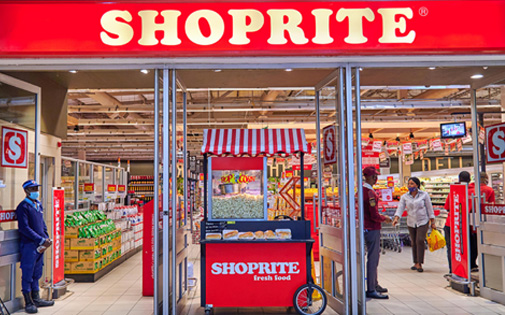Shock as Shoprite Closes Stores in Ibadan, Ilorin

Shoprite Nigeria is facing one of its toughest challenges in years, with two outlets shut down and several others struggling to stock shelves.
The retail giant, once Nigeria’s most dominant supermarket chain, has seen its operations shrink since local investors took over from its South African parent company four years ago.
Stores shut down amid uncertainty
According to findings by Daily Trust, Shoprite outlets in Ibadan and Ilorin have already closed.
Notices pasted at the entrances of the Ibadan branches in Ring Road and Mokola cited “circumstances beyond immediate control” but promised a reopening soon.
In Lagos, the Ikeja City Mall outlet—previously a hub for shoppers—now shows half-empty shelves. Groceries, frozen foods, and wine racks that once overflowed with products now appear deserted. Abuja branches are also reporting limited stock.
Despite growing speculation of a possible exit, store officials insist Shoprite is not leaving Nigeria.
Management blames supply chain disruptions
A store administrator at the Ikeja branch, identified as Oluwatosin, explained that the stock shortage is linked to renegotiations with suppliers.
“Actually, there is a new management, so they are trying to meet with all stakeholders, suppliers and vendors, to renegotiate prices. Once that is done, stores will start receiving stock again,” Oluwatosin said.
However, some staff members have voiced frustration, citing uncertainty and fear about their job security.
Rising competition and tough economy
Shoprite entered Nigeria in 2005 and quickly rose to the top of the retail market with its variety and affordable prices. But in recent years, new malls, fast-growing local supermarkets, and online platforms have chipped away at its dominance.
Economic challenges—such as rising inflation, currency instability, and high operating costs—have worsened the situation. Shoprite has already scaled down operations in other African countries including Kenya, Uganda, and Ghana.
Dr. Marcel Okeke, an economic analyst, warned that Shoprite’s struggles reflect a wider business climate problem in Nigeria.
“Many companies have left, and more may still leave. Nigeria’s business environment is not competitive compared to others. Until policies improve, investors will keep looking elsewhere,” Okeke said.
Eco-friendly policy on bags
In a related move, Shoprite recently announced that it will stop providing nylon bags at its Lagos outlets.
Customers are now encouraged to bring reusable bags or buy eco-friendly alternatives in line with government policy on single-use plastics.
What this means for shoppers
For Nigerian consumers, the ongoing crisis means fewer options and rising prices in formal retail shopping.
Unless the management resolves supply chain disputes and restores confidence, Shoprite could fade further from Nigeria’s retail landscape.
Post Views: 17





